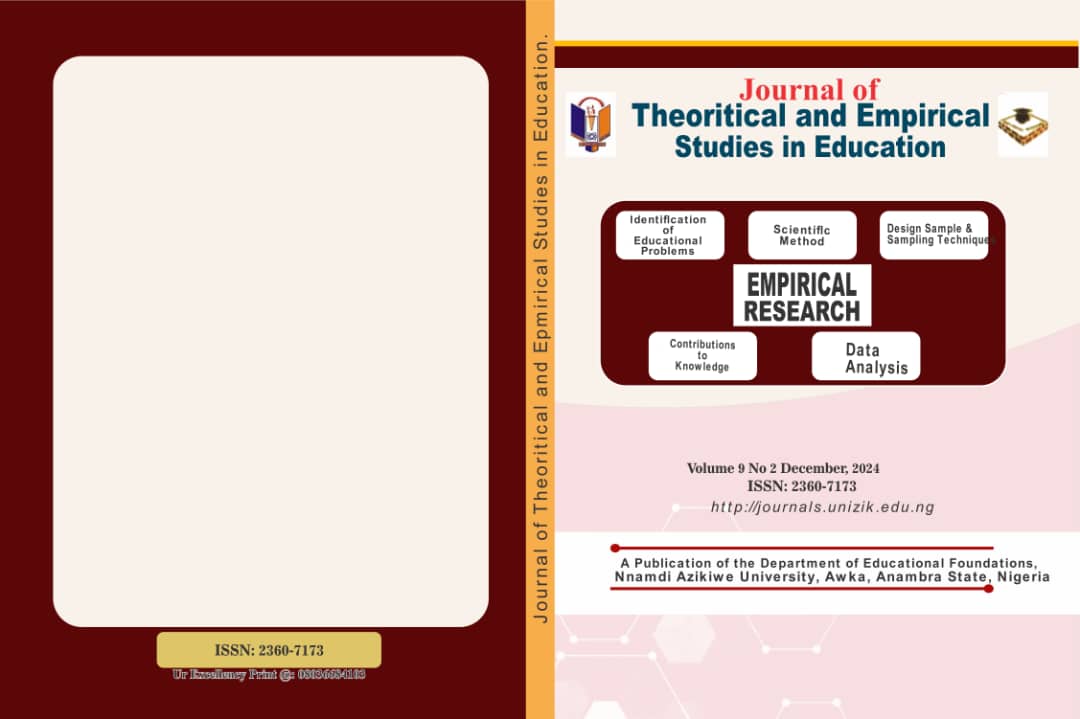PHILOSOPHICAL PERSPECTIVES OF VOCATIONAL EDUCATION, EXPERIMENTATION, AND SOCIAL PROGRESS IN ANAMBRA STATE
Keywords:
Philosophical perspective, vocational education, experimentation, social progress.Abstract
This study investigated the philosophical perspectives of vocational education, experimentation, and social progress in Anambra State. Three research questions guided the study. Descriptive survey research design was adopted for the study. The population of the study consisted of 8788 teachers in public secondary schools in Anambra State. The sample size was 600 teachers, selected through simple random sampling technique. A researcher-made questionnaire was the instrument used for data collection. The questionnaire was validated by three experts, two in Philosophy of Education and one in Measurement and Evaluation, all from Nnamdi Azikiwe
University, Awka. The reliability was calculated using Cronbach Alpha for each of the subsections; 0.81, 0.77 and 0.79 were the scores obtained for the subsections. Mean rating was used for data analysis. The findings also showed that philosophical perspectives on vocational education, experimentation, and social progress in Anambra State reveal a complex and multifaceted landscape. The studies underscore the need for a nuanced approach, integrating practical skills, social justice, human development, community engagement, and cultural sensitivity. Effective vocational education should prioritize contextual learning, empowerment, and social
transformation. Experimentation must balance empirical rigor with social responsibility, indigenous knowledge, and environmental sustainability. Social progress demands participatory development, critical consciousness, and African-centered epistemologies. These philosophical perspectives illuminate the interconnectedness of vocational education, experimentation, and social progress in
Anambra State. By embracing this interconnectedness, stakeholders can foster inclusive, sustainable, and equitable development, empowering individuals and communities to thrive. It was recommended among others that government should establish a Vocational Education Revitalization Program is crucial. This program should modernize vocational education curricula, upgrade infrastructure, and provide training for instructors, focusing on emerging industries like technology and renewable energy. Again, government should create an experimentation and Innovation Hub is also vital, bringing together researchers, entrepreneurs, and
industry experts to foster collaboration, knowledge sharing, and innovation. Funding should support cutting-edge research, prototype development, and startup incubation.




